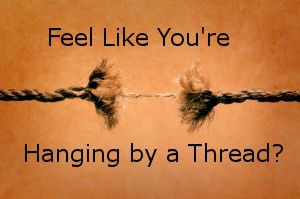Fear of Death Anxiety: Can It Cause Fear of Death?
Explore the connection between fear of death and anxiety. Learn how this common fear can impact mental health, its causes, and practical strategies to cope with death anxiety and embrace a more peaceful perspective on life and mortality.

It is important to recognize that these feelings are normal and can be managed. Three primary strategies can be used to address anxiety and fear of death: mindfulness, cognitive behavioral therapy, and medication. Additionally, cultivating death acceptance can significantly alleviate death anxiety. Death acceptance involves acknowledging and embracing the inevitability of death, which can reduce the fear associated with it. Therapeutic approaches such as cognitive-behavioral techniques and existential psychotherapy are effective in helping individuals confront and accept their mortality.
Mindfulness is a form of meditation that helps individuals focus on the present and gain awareness of their thoughts and feelings. Mindfulness practices such as breathwork, journaling, and yoga can help individuals cope with anxious thoughts. Cognitive behavioral therapy (CBT) is also an effective tool to manage anxiety and fear of death. CBT focuses on identifying and challenging negative thought patterns in order to reduce feelings of distress. Finally, medication can be prescribed to alleviate physical and emotional symptoms of anxiety.

It is important to remember that anxiety and fear of death are normal emotions and can be effectively managed. It is recommended that individuals reach out for help if their anxiety or fear of death becomes overwhelming. With the right support, individuals can learn how to cope with their anxiety and gain a better understanding of how their feelings relate to their fear of death.
Fear of death is a common emotion, and it can be difficult to identify the cause. For some people, however, anxiety can be the culprit and can lead to deeper feelings of fear of death. It can also lead to destructive behaviors such as substance abuse, self-isolation, or avoidance of certain activities. Fears of death may also contribute to various mental health conditions, emphasizing the importance of addressing these fears to prevent a recurrence of mental health issues.
Anxiety disorders, such as generalized anxiety disorder, are categorized as anxiety disorders and often co-occur with other mental health disorders such as depression, PTSD, and bipolar disorder. Understanding the broader context of phobias and their relationship with various psychological conditions is crucial for effective treatment.
Understanding Death Anxiety
What is Death Anxiety?
Death anxiety, also known as thanatophobia, is a type of anxiety disorder characterized by an intense fear of death or the dying process. This fear can be overwhelming and pervasive, affecting various aspects of an individual’s life, including their mental and physical health. Death anxiety can manifest in different ways, such as a fear of one’s own death, fear of the death of a loved one, or fear of the unknown aspects of death. While it is a normal part of human existence to have some level of concern about death, when this fear becomes excessive or irrational, it can interfere with daily life and cause significant distress. Understanding death anxiety is crucial for recognizing its impact and finding ways to manage it effectively.
The Connection Between Anxiety and Death Anxiety
Anxiety Disorders and Death Anxiety
Anxiety disorders, such as generalized anxiety disorder, panic disorder, and post-traumatic stress disorder (PTSD), often co-occur with death anxiety. Individuals with these anxiety disorders may experience heightened death anxiety due to their increased state of arousal and pervasive fear. This heightened state can make them more susceptible to intense fear of death, creating a vicious cycle where death anxiety exacerbates their existing anxiety disorders. Conversely, the presence of death anxiety can intensify the symptoms of anxiety disorders, leading to a continuous loop of fear and anxiety. Addressing death anxiety within the context of anxiety disorders is essential for providing effective treatment and improving overall mental health outcomes.

Causes of Death Anxiety
Traumatic Experiences and Death Anxiety
Traumatic experiences, such as the loss of a loved one, a near-death experience, or exposure to violence, can significantly contribute to the development of death anxiety. These experiences can lead to the formation of negative beliefs and attitudes towards death, which can manifest as death anxiety. Individuals with a history of trauma are often more prone to developing anxiety disorders, further increasing their risk of experiencing death anxiety. Addressing the impact of traumatic experiences on mental health is crucial for reducing the risk of developing death anxiety. By acknowledging and working through these traumatic events, individuals can begin to alleviate their death anxiety and improve their overall mental health.
FAQ: Fear of Death Anxiety: Can It Cause Fear of Death?
This comprehensive FAQ provides answers to common questions about fear of death anxiety, its impact on mental health, and strategies for managing such fears.
General Questions
What is fear of death anxiety?
Fear of death anxiety, also known as thanatophobia, is an intense fear or dread of one's own death, the dying process, or the concept of death itself. It can affect daily life, mental health, and overall well-being.
How is fear of death anxiety related to other anxiety disorders?
Fear of death anxiety is considered a distinct disorder but often overlaps with other anxiety disorders such as panic disorder, specific phobias, and generalized anxiety disorder. Symptoms may include panic attacks, dread, and intense fear triggered by thoughts of death or dying.
What causes fear of death anxiety?
Several factors can contribute, including:
- A specific event, such as a terminal illness diagnosis or the loss of a loved one.
- Unrealistic beliefs about death or the dying process.
- Exposure to death-related situations, such as confined spaces or dead bodies.
- Religious beliefs and attitudes toward death.
Can children experience fear of death anxiety?
Yes, children can experience such fears, often due to exposure to discussions about death, family loss, or specific phobias. Support and understanding are crucial for managing these feelings in younger individuals.
Impact on Mental Health
How does fear of death anxiety affect mental health?
Fear of death anxiety can lead to various mental health conditions, such as depression, social anxiety, and post-traumatic stress disorder (PTSD). It can also exacerbate existing anxiety disorders.
Can fear of death anxiety impact physical health?
Yes, the stress from this anxiety can lead to physical symptoms such as difficulty breathing, increased heart rate, and panic attacks, which can affect one's overall well-being.
What is the "death attitude profile"?
The death attitude profile is a clinical tool used to assess individuals’ attitudes toward death, ranging from acceptance to extreme fear. It helps in understanding the underlying beliefs and emotions driving such fears.
Treatment and Management
What are the treatment options for fear of death anxiety?
Treatment options include:
- Exposure therapy: Gradual exposure to death-related topics or situations.
- Relaxation techniques: Meditation, guided imagery, and deep breathing.
- Cognitive-behavioral therapy (CBT): Addressing unrealistic beliefs and developing healthier thought patterns.
- Medication: For severe symptoms, a healthcare provider may prescribe anti-anxiety medication.
- Support groups: Talking with others who share similar fears.
When should someone seek treatment for fear of death anxiety?
If the fear significantly impacts daily life, leads to panic attacks, or interferes with relationships, seeking treatment from a healthcare provider or mental health professional is recommended.
Can religious beliefs influence fear of death anxiety?
Yes, religious beliefs often shape death attitudes. For some, faith provides comfort and acceptance, while for others, it may heighten fears due to concerns about afterlife judgment or existential questions.
Specific Concerns
Are elderly people more prone to fear of death anxiety?
Elderly people may experience an increased focus on their own mortality due to health issues, the loss of family members, or social isolation. However, attitudes toward death vary widely based on personal experiences and cultural factors.
Can a terminal illness cause fear of death anxiety?
Yes, a terminal illness often leads to intense fear, especially regarding the dying process. Psycho-oncology services can provide support for patients and families coping with such fears.
How does fear of death anxiety differ from a general fear of dying?
Fear of death anxiety is a transdiagnostic construct that encompasses not only the general fear of dying but also specific fears tied to one’s own mortality, social situations, or confined spaces.
Research and Clinical Insights
What does research say about fear of death anxiety?
Studies, including systematic reviews and meta-analyses, highlight the prevalence of such fears across the life span. Clinical psychology literature suggests that addressing these fears can improve mental health outcomes and overall quality of life.
How does fear of death anxiety manifest in daily life?
People may avoid reading obituaries, discussing death, or interacting with loved ones dealing with terminal illness. These behaviors stem from an immediate fear or dread of confronting mortality.
Can fear of death anxiety lead to specific phobias?
Yes, it can contribute to specific phobias, such as fear of confined spaces, dead bodies, or other conditions that remind individuals of death or dying.
Practical Tips
How can individuals manage fear of death anxiety in daily life?
- Practice relaxation techniques to reduce immediate fear.
- Seek support from a therapist or counselor.
- Engage in open conversations about death to build acceptance.
- Focus on the present and cultivate gratitude for life.
How can family members support someone with fear of death anxiety?
- Provide a listening ear without judgment.
- Encourage them to seek professional help if needed.
- Share information about effective treatment options and coping strategies.
What role do healthcare providers play in managing fear of death anxiety?
Healthcare providers can diagnose and treat anxiety disorders, provide exposure therapy, and recommend relaxation techniques. They also offer guidance on addressing specific fears and improving overall mental health.
Are there resources for further reading on this topic?
Books like "Jossey-Bass on Clinical Practice" and journals such as "Clinical Psychology Review" and "Psycho-Oncology" offer in-depth insights into fear of death anxiety and related mental health conditions.
You might also like this article:






